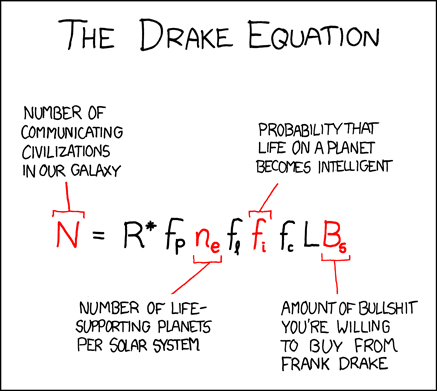from the out-with-the-old... dept
It's no secret that Paul McGuinness, U2's longtime manager, has been making bizarre and easily refuted claims that
everyone but the music industry is at fault for not making U2 even richer than it is. And that's because they're all conspiring to bring piracy to the world, which is destroying music revenue while pumping up the revenue of lots of other companies. Of course, none of that is true. Music-based revenues continue to
climb quite nicely, and the revenue that ISPs and Google and others are making from "piracy" is barely worth mentioning. Does anyone really think that broadband would have noticeably fewer customers without music piracy going around?
Still, there had been some question about what U2's outspoken frontman, Bono, felt about these issues. Back in 2008, he did say that he
mostly agreed with McGuinness that somehow ISPs were to blame for all of this. Then, in early 2009, there was an amusing interview where he basically said that
piracy is bad, but he couldn't really speak out against it because he was too rich, and people would point that out.
Apparently he forgot that part.
As pretty much all of you are sending in, Bono has posted his regular NY Times column, about 10 big things that are important for the next 10 years and apparently,
protecting his royalties... I mean... stomping out piracy makes it to number two on the list. It's the same McGuinness blather, of course. Apparently, piracy is really all the ISPs' fault:
A decade's worth of music file-sharing and swiping has made clear that the people it hurts are the creators -- in this case, the young, fledgling songwriters who can't live off ticket and T-shirt sales like the least sympathetic among us -- and the people this reverse Robin Hooding benefits are rich service providers, whose swollen profits perfectly mirror the lost receipts of the music business.
Hmm. So, apparently all the money that people used to spend on music, they now spend on internet connections? If only there were some evidence to back that up. But, as we noted, the music business
has been growing, just not the sales of CDs. Considering how much U2 made on its last tour, you would think that Bono would be aware of this. As for his claim that the internet is harming the up-and-coming songwriters, again, all this shows is how incredibly out of touch Bono is. In the past, the "young, fledgling songwriter" couldn't live off ticket or t-shirt sales either. He had to hope that he got the lucky golden ticket from a record label and that they didn't then crush his spirit and originality before discarding him as an
unrecouped has-been.
Today, however, the opportunities for the young, fledgling songwriter to build a following, build a business model and make a living have grown tremendously. Ask Jonathan Coulton. Or
Corey Smith. Or
Matthew Ebel. Or
Moto Boy. Or any one of thousands of other songwriters who didn't go the major label route, but have figured out ways to make a living (or better) that simply
would not have been possible just a few years ago.
So what's Bono's solution to this non-problem? Apparently it's for ISPs to spy on what everyone does and to fork over money they get to the musicians (well, he says musicians, but what he really means is the major record labels):
But we know from America's noble effort to stop child pornography, not to mention China's ignoble effort to suppress online dissent, that it's perfectly possible to track content.
Now, Bono is technically (beyond his role with U2) a
venture partner at the venture capital firm Elevation Partners, and you would think that would require some basic level of technological knowhow. But, you get the feeling Elevation brought him on for his star power, rather than his keen technology insights, or he might realize that neither America's efforts to stop child pornography, nor China's efforts to suppress online dissent have
worked very well. Neither has shown that it's "perfectly possible to track content." In fact, they've shown the reverse. They've shown that the more you try to track people, the further underground they go.
And is Bono really (really?) suggesting that we force ISPs to use the same tactics used to try to silence dissent in China to protect his royalties? Yikes.
Perhaps movie moguls will succeed where musicians and their moguls have failed so far, and rally America to defend the most creative economy in the world, where music, film, TV and video games help to account for nearly 4 percent of gross domestic product.
The problem here is that, again, Bono seems to equate file sharing with a loss of money or decrease in output from the wider creative industries. He's flat out wrong. The overall industries continue to grow. It's just a small group of the more powerful middlemen, who have refused to adapt and change with the times, who are stuck in the past. And it's because of their own unwillingness to adapt, that they may be losing some money. But the creative output, and the economic impact of those overall industries continue to grow, no matter how confused some rockstar on a crusade might be about them.
So if we're looking for big trends over the next ten years, how about we learn to stop listening to out of touch rockstars who insist they know stuff they are clearly uninformed about (or, rather, informed by a few biased and factually-challenged parties)?
Filed Under: bono, censorship, china, copyright, piracy, u2


